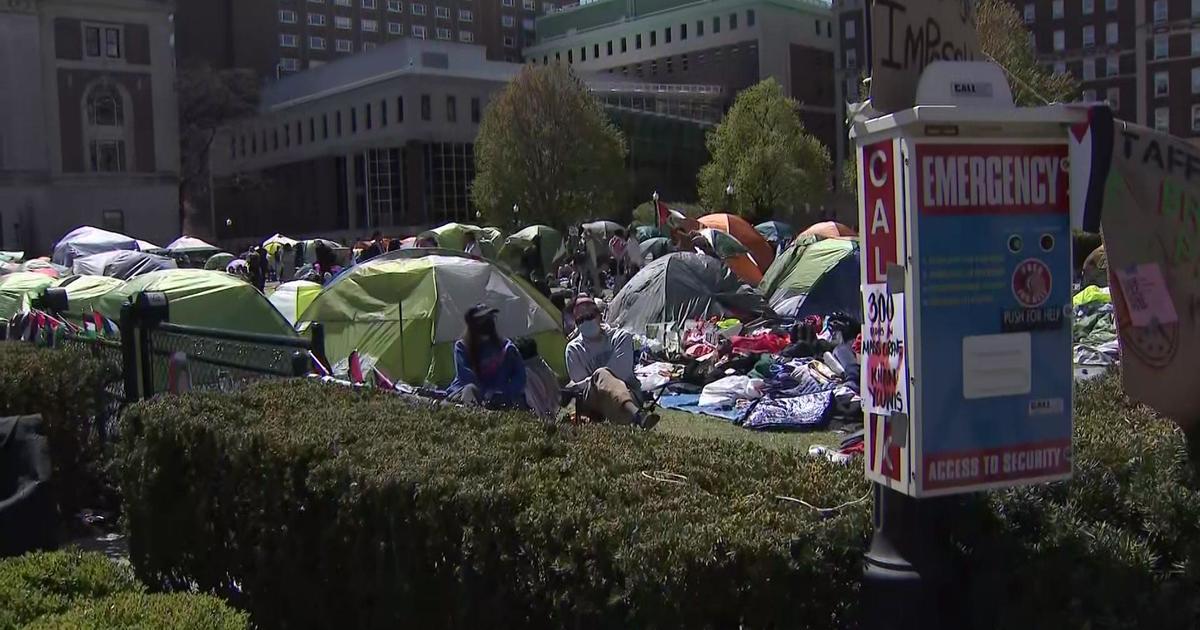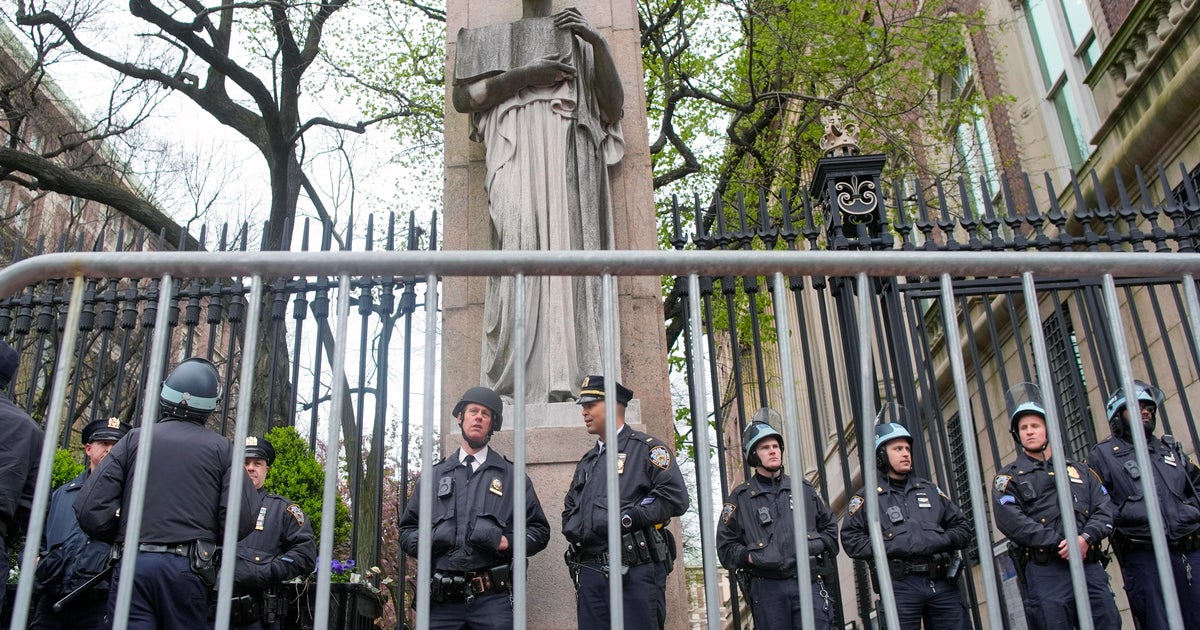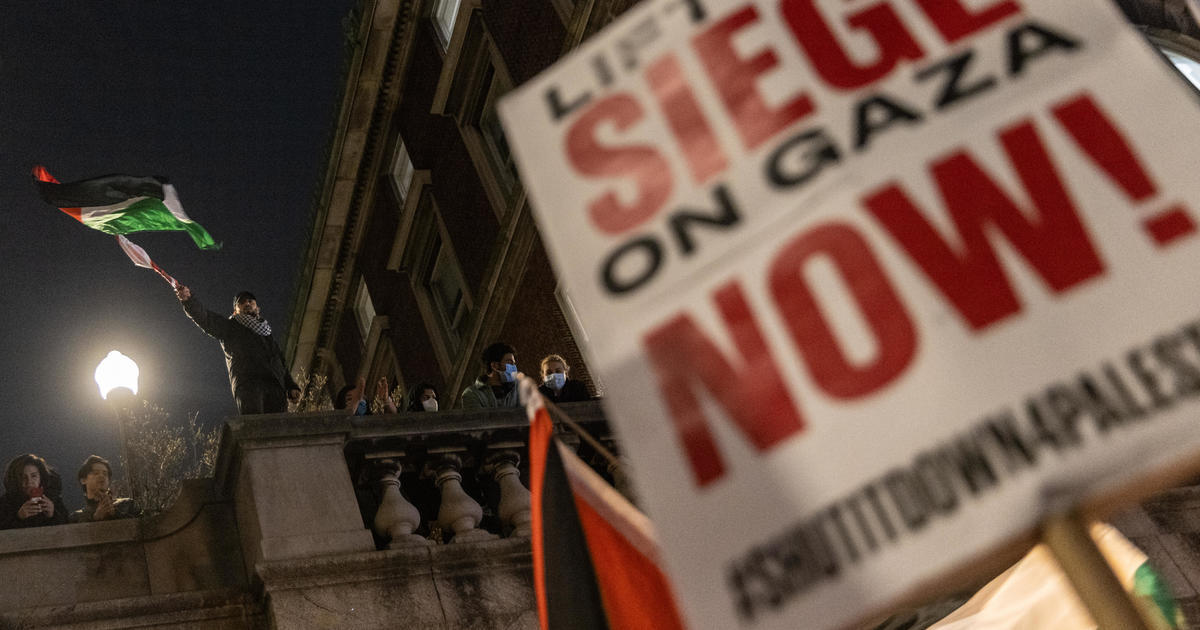Racial Strife Protests At Yale, Ithaca Follow In University Of Missouri's Footsteps
ITHACA, NEW YORK (CBSNewYork/AP) -- In the ouster of the University of Missouri's president, leaders of student groups on other campuses dealing with racial strife see an opening to press their own university administrators for better treatment of black students.
At schools including Yale, Ithaca, Hunter, SUNY and Michigan, students say the protests that led to the resignation of Missouri President Tim Wolfe are emboldening them to take a harder line.
"It shows administrations that this is something that they need to take seriously,'' said Eshe Sherley, a senior at Yale University, where more than 1,000 people joined a march this week in solidarity with minorities. "It also shows students that the work they're doing isn't in vain.''
The issues vary from one campus to another, but many students say there's a common thread among campuses that can be inhospitable to students from racial minorities. Some are calling for more diversity among faculty and more spending on scholarships for minorities, as well as resources such as cultural centers.
"You can't just bring students in; you've got to have faculty and staff members in key positions and you've got to be current,'' said Roger Pulliam, senior faculty adviser of the National Black Student Union, based in Whitewater, Wisconsin.
Student Tyler Brenes organized a march and rally at William Paterson University in Wayne, N.J.
"Students are trying to get power they're trying to get a voice on campus," Brenes told CBS2's Dave Carlin. "It revolves around a whole slew of issues."
Hunter College and SUNY New Paltz also held demonstrations.
The Missouri case is bringing attention to issues that have been simmering on other campuses for months or longer amid a national discussion of race relations and treatment of blacks in America.
Student activists say it also demonstrated the power of a united protest.
Ravyn Brooks, a junior at Missouri State University, is among students who confronted administrators earlier this year over issues including faculty diversity and the planning of a diversity center they heard about through the school's mostly white student government. When she heard about the Missouri protests, Brooks wrote an online post calling students across the country to demonstrate in support.
"This event on the MU campus shows other students how much power we actually have when we come together as a campus,'' Brooks said. "There's power in solidarity, there's power in a unified voice, and it exposes systemic racism in higher education.''
Black students at the University of Michigan, who make up only about 4 percent of the student body, have pressured the administration to boost diversity. If it doesn't happen, students said, they'll take a lesson from Missouri.
"We will look to organize like Missouri students if the administration is not keeping their end of the bargain of what they promised,'' said Capri'Nara Kendall, a senior at Michigan. "We're not afraid to organize.''
Students at more than 20 colleges are planning solidarity demonstrations this week, including at Harvard, Columbia and Syracuse universities. Inspired by the Missouri case, students at Loyola University in Chicago and other schools are preparing a list of demands for their administrators.
Hundreds of students walked out of class on Wednesday at Smith College in Northampton, Massachusetts, and at New York's Ithaca College, to protest racial injustice on campus and to support minority students across the country. Black alumni at Georgia Tech are crafting a letter warning the university president to stay committed to diversity.
Ithaca President Thomas Rochon announced Tuesday that he was appointing a new Chief Diversity Officer.
"Today I am announcing the creation of a new position at Ithaca College: Chief Diversity Officer. The position, which will report directly to me, will provide clear leadership and ownership over the implementation of our ongoing work to improve our campus's racial climate and build a culture that lives up to its values of civility, mutual respect, and justice. Other institutions have been able to engender lasting change by establishing this level of accountability, and I am confident that this is the right thing for Ithaca College as well," Rochon said.
On Thursday, November 12, Chris Biehn, Vice President for Institutional Advancement and Communication, released the following statement:
"Over the past 36 hours, Ithaca College has experienced increased media coverage related to a demonstration that was held November 11 on the academic quad. This event was the most recent in a series of passionate conversations about issues of racism and cultural bias on our campus. We have been deeply engaged in these conversations in our community throughout the fall semester.
Dialogues like this are happening at colleges and universities, as well as in cities and towns across the country, and point toward the need for a systemic change at Ithaca College and elsewhere.
Our campus is in the midst of a very active conversation about these complex issues. But this is still the Ithaca College you remember and love from your days as a student. As always, we embrace our students' energy and engagement around problems in this community and beyond. Such debate is a vital part of any vibrant, active, learning community, and a critical component of forging lasting change.
President Rochon and other campus leaders have reiterated the college's commitment to the principles of inclusion — and to the goal of ensuring that Ithaca College is a place where all students, faculty, staff, and visitors feel safe and respected. As you may know, the college is currently implementing a plan to change our campus climate; I encourage you to view more details at ithaca.edu/diversity.
You can also visit ithaca.edu/campusupdates to view additional resources and support services that are available to our community.
Today, the conversation continues and, despite the national media attention, classes are in session, clubs are meeting, athletes are practicing, and our entire community is focused on the work in front of us: making this campus community a more welcoming, compassionate environment for all."
At the University of Missouri, weeks of protests reached a boiling point this week when the football team announced it would refuse to play until the school's president, Tim Wolfe, quit. Protesters accused Wolfe of ignoring racist attacks against students, amid other alleged missteps. He resigned on Monday.
Universities have vowed to address racially-charged issues, holding forums on diversity and pledging to review what changes might be necessary.
Yale President Peter Salovey said Wednesday the administration is developing initiatives focused on improving the campus climate and fostering diversity at the Ivy League school. Students there took to the streets after an Oct. 28 university email warning about racially insensitive Halloween costumes prompted a professor to complain that Yale and other campuses were becoming "places of censure and prohibition.''
"We cannot overstate the importance we put on our community's diversity, and the need to increase it, support it, and respect it. We know we have work to do, for example in increasing diversity in the faculty, and the initiatives announced last week move us closer toward that goal," Salovey added.
(TM and © Copyright 2015 CBS Radio Inc. and its relevant subsidiaries. CBS RADIO and EYE Logo TM and Copyright 2015 CBS Broadcasting Inc. Used under license. All Rights Reserved. This material may not be published, broadcast, rewritten, or redistributed. The Associated Press contributed to this report.)



